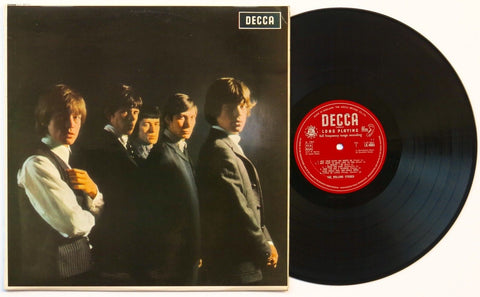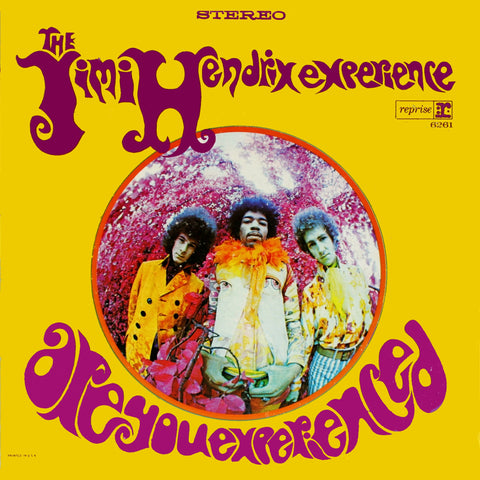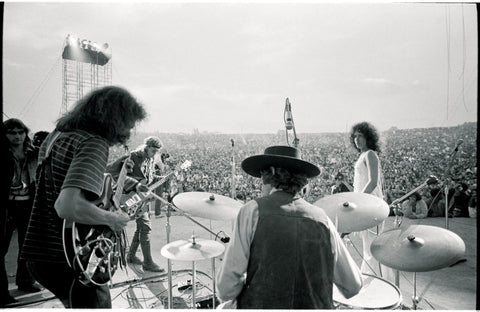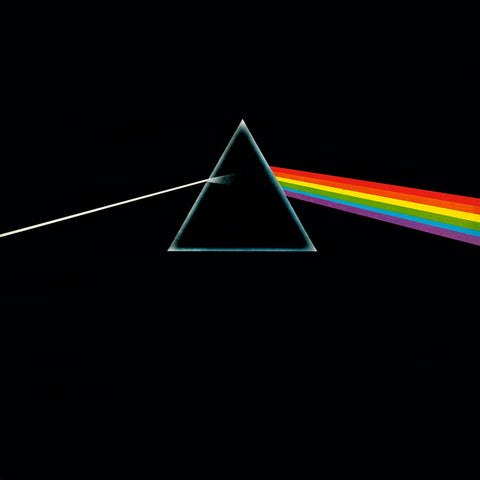Your Cart is Empty
Free shipping in the US on all orders $50+
Free shipping in the US on all orders $50+

A few weeks ago, I read “1971 - Never a Dull Moment: Rock’s Golden Year” by David Hepworth.
In the book, Hepworth argues that 1971 was the most important year in rock history. According to the author, the rock landscape changed in those twelve months, with massive shifts at an industrial, social and cultural level.
As a result, a huge number of monumental albums were released; The Stones’ “Sticky Fingers”, “Who’s Next” and “Led Zep IV” to name but a few. And, it was the year that a plethora of rock legends established their place in the pantheon of popular music.
Hepworth makes a compelling argument, and the book is a bloody good read (it took me less than a day to plough through its 384 pages; “unputdownable” as they say in the press!). But, while reading, it struck me that there are several other key years in rock history that could lay claim to the title of “rock’s most important.”
These were years in which the music went through profound shifts, years in which landmark records came out and bands that redefined not just music, but popular culture emerged.
So, just for fun, I’ve compiled my cliff notes on several of rock’s key years below. For each of my picks, I’ve included key events, important albums and emerging acts.
1964
 Key Events:
Key Events:
Key Albums:
Key Acts:
The Beatles, The Rolling Stones, The Kinks, Bob Dylan, The Beach Boys, Joan Baez, Chuck Berry, Aretha Franklin
1967
 Key Events:
Key Events:
Key Albums:
Key Acts:
Jimi Hendrix, The Doors, Big Brother and the Holding Company, Jefferson Airplane, Grateful Dead, Buffalo Springfield
1969
 Key Events:
Key Events:
Key Albums:
Key Acts:
Led Zeppelin, Crosby, Stills, Nash, Neil Young, Creedence Clearwater Revival, The Rolling Stones
1973
 Key Events:
Key Events:
Key Albums:
Key Acts:
Pink Floyd, David Bowie, Bruce Springsteen, Elton John, Paul McCartney
So, if I were to whittle it down, those would be my four contenders (five
alongside the aforementioned 1971).
But I want to know what you guys think! What do you think is rock’s greatest year, and why?
And, which key events in rock n’ roll history do you remember witnessing, and what impact did they have on you?
As always share your thoughts, stories and opinions in the comments section.
Of all the famous musicians in history, you will likely never find another of the likes of Frank Zappa.
From playing the bicycle on the Steve Allen Show to psychedelic rock with The Mothers of Invention to the years of compositional rock n’ roll madness, attracting the best of the best musicians to play in his band (likely because they’re the only ones who can pull off his music).
It’s safe to say that some of the most influential musicians in the 1960s came from Britain. The list sure backs up that fact: Eric Clapton, Jimmy Page, Jeff Beck, Pete Townshend, Peter Green, Richie Blackmore, John Lennon, George Harrison, and I can go on and on and on...
Notice, though, that I said musicians, not just guitarists. There are many heroes to be found for every instrument, particularly with our focus for this piece: the drums.


